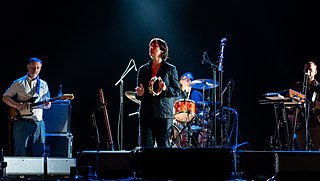
Stereolab are an English-French avant-pop band formed in London in 1990. Led by the songwriting team of Tim Gane and Lætitia Sadier, the group's music combines influences from krautrock, lounge and 1960s pop music, often incorporating a repetitive motorik beat with heavy use of vintage electronic keyboards and female vocals sung in English and French. Their lyrics have political and philosophical themes influenced by the Surrealist and Situationist movements. On stage, they play in a more feedback-driven and guitar-oriented style. The band also draw from funk, jazz and Brazilian music, and were one of the first artists to be dubbed "post-rock". They are regarded among the most innovative and influential groups of the 1990s.

In music, a single is a type of release, typically a song recording of fewer tracks than an LP record or an album. This can be released for sale to the public in a variety of formats. In most cases, a single is a song that is released separately from an album, although it usually also appears on an album. Typically, these are the songs from albums that are released separately for promotional uses such as digital download, or video release. In other cases a recording released as a single may not appear on an album.
Last.fm is a music website founded in the United Kingdom in 2002. Using a music recommender system called "Audioscrobbler", Last.fm builds a detailed profile of each user's musical taste by recording details of the tracks the user listens to, either from Internet radio stations, or the user's computer or many portable music devices. This information is transferred ("scrobbled") to Last.fm's database either via the music player or via a plug-in installed into the user's music player. The data are then displayed on the user's profile page and compiled to create reference pages for individual artists.
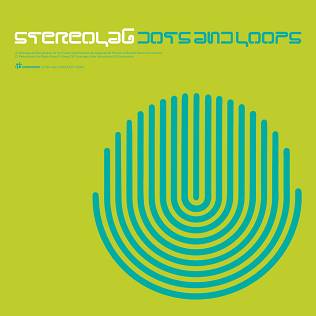
Dots and Loops is the fifth studio album by English-French rock band Stereolab. It was released on 22 September 1997 and was issued by Duophonic Records and Elektra Records. The band co-produced the album with John McEntire and Andi Toma, and recording took place in Chicago and Düsseldorf. The album explores jazz and electronic sounds, and is influenced by bossa nova and 1960s pop music. Its lyrics address matters such as consumerism, the "spectacle", materialism, and human interaction.

Mars Audiac Quintet is the third studio album by English-French rock band Stereolab. It was released on 2 August 1994 in the United States by Elektra Records and on 8 August 1994 in the United Kingdom by Duophonic Records. Keyboardist Katharine Gifford joined the band for the recording of the album. During recording, guitarist Sean O'Hagan left as a full-time member in order to focus on his band the High Llamas.
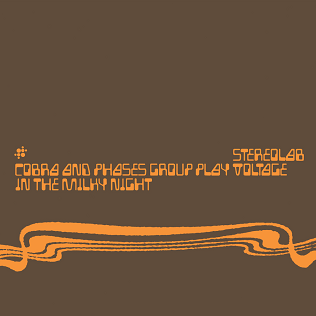
Cobra and Phases Group Play Voltage in the Milky Night is the sixth studio album by English-French rock band Stereolab. It was released on 21 September 1999 in the United States by Elektra Records and on 27 September 1999 in the United Kingdom by Duophonic Records. The album was recorded between November 1998 and February 1999, and was largely co-produced by Stereolab, John McEntire, and Jim O'Rourke. As band members Tim Gane and Lætitia Sadier were occupied with raising their infant son at the time, Stereolab opted to record the album in London instead of Chicago, where McEntire and O'Rourke were typically based.

Sound-Dust is the seventh studio album by English-French rock band Stereolab. It was released on 28 August 2001 in the United States by Elektra Records and on 3 September 2001 in the United Kingdom by Duophonic Records. The album was produced by John McEntire and Jim O'Rourke and recorded at McEntire's Chicago studio Soma. It was Stereolab's last album to feature singer and guitarist Mary Hansen, who died in a biking accident the following year.
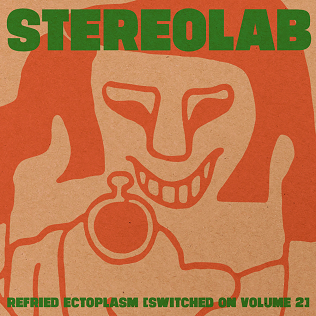
Refried Ectoplasm , released in July 1995, is a compilation by Stereolab of singles and rarities.

Music for the Amorphous Body Study Center is an EP by Stereolab, created in collaboration with New York sculptor Charles Long. The songs became part of Long's exhibit, complementing each of his sculptures. The album was initially available only at the exhibit in a pressing of 1500; another limited pressing was later released in stores but it is now out of print. All tracks were included in the compilation album Aluminum Tunes: Switched On, Vol. 3.
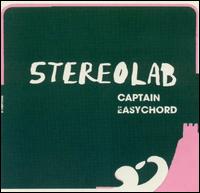
Captain Easychord is a July 2001 EP by Stereolab. It was released on CD and 12" vinyl one month prior to the album Sound-Dust. "Moodles" is included on the Japanese version of the Sound-Dust album as a bonus track. The album version of the title track has two musically distinct sections and lasts 5:33; the EP version comprises only the first section, fading out shortly before the transition to the second.
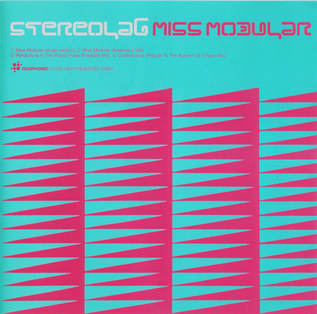
Miss Modular is a 1997 EP by the post-rock band Stereolab, which served as the lead single from their fifth full-length studio album Dots and Loops. It was produced in collaboration with the group Mouse on Mars.

Simple Headphone Mind is the second collaboration between Stereolab and Nurse With Wound. As with their first release, Crumb Duck, Stereolab recorded the basic track and then handed it over to Steven Stapleton to do with as he pleased. Unlike with Crumb Duck, listeners can hear the original Stereolab recording, as it was issued under the title The Long Hair Of Death on a split single with Yo La Tengo; this version was also featured on Stereolab's Aluminum Tunes compilation album.
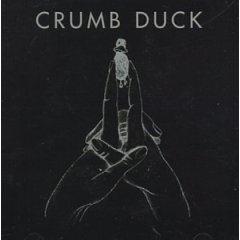
Crumb Duck is the first collaboration between prolific Anglo-French indie band Stereolab and cult avant-garde unit Nurse With Wound, first released on 10" vinyl on the Clawfist label in 1993.
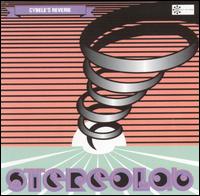
Cybele's Reverie is an EP by English-French rock band Stereolab, released on 19 February 1996 by Duophonic Records. Its title track serves as the lead single from their fourth studio album Emperor Tomato Ketchup. The four-track EP is the only one by Stereolab on which none of the songs are in English: the title track, "Brigitte", and "Young Lungs" are in French, and "Les Yper-Yper Sound" is an instrumental.

The discography of Stereolab, an English-French rock band, comprises thirteen studio albums, seven compilation albums, fifteen extended plays, sixteen singles, and twenty-three rarities compilations. Release dates listed are earliest worldwide.
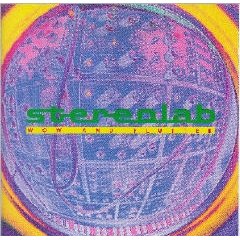
Wow and Flutter is an EP by the post-rock band Stereolab, which served as the second single from their 1994 album Mars Audiac Quintet. A limited edition of 3000 7" copies was released with hand-painted covers. The EP was also released on CD and 10" vinyl.
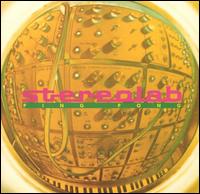
Ping Pong is a 1994 EP by the English-French avant-pop band Stereolab. It served as the lead single from their third full-length album Mars Audiac Quintet. Three limited 7" runs were released in green, black, and pink colors. It was also released on CD and 10" vinyl.

Jenny Ondioline is a 1993 EP by the Anglo-French band Stereolab, which served as the lead single from the album Transient Random-Noise Bursts with Announcements. It was released on CD and 10" vinyl. Its tracks were later re-released on the Oscillons from the Anti-Sun compilation.
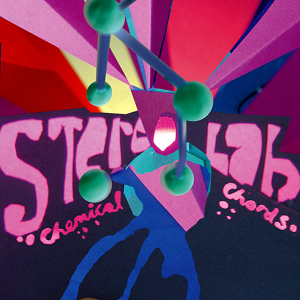
Chemical Chords is the ninth studio album by English-French rock band Stereolab, released on 18 August 2008 by 4AD and Duophonic Records.

Transient Random-Noise Bursts with Announcements is the second studio album by English-French rock band Stereolab. It was released on 24 August 1993 in the United States by Elektra Records and on 6 September 1993 in the United Kingdom by Duophonic Records.



















